The 1990s were in many ways wilderness years for Liverpool, who were strong enough to win silverware but never managed to consistently, as Rob Jones tells This Is Anfield.
We recently began a series on Liverpool players that we as supporters felt aren’t perhaps appreciated as much as they should be. We kicked things off with Steve McManaman—a player whose quality and legacy is tarnished by the manner of his departure.
Whatever your thoughts on McManaman’s exit—the first big-name Bosman deal of the ’90s—it doesn’t need to overshadow what happened before that, when he was the Reds’ talisman for over eight seasons.
McManaman’s article was something that Robbie Fowler agreed with, and Robbie himself was another to feature in the series.
Ultimately, perhaps, it’s trophies that ensure how a player is truly remembered, with plenty of inferior players being appreciated more widely than some of the ’90s squad purely as they were part of a trophy-winning side.
Seeking a player’s view on this, we spoke to a man who played alongside McManaman and Fowler throughout the ’90s, with Rob Jones arriving at Anfield in 1991 and departing in 1999.
No surprises
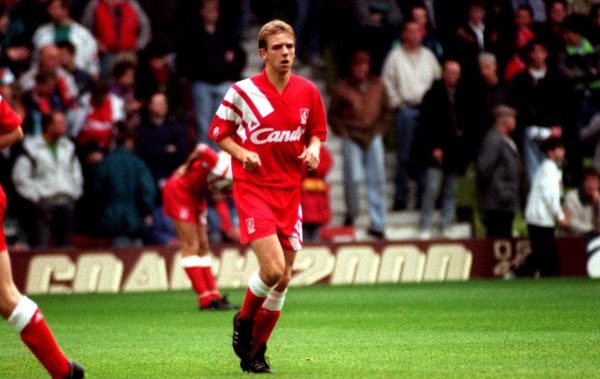
Jones’ arrival, and fast-paced debut—just 48 hours after signing for the club, lining up at Old Trafford up against Ryan Giggs—may have come as a surprise, but to the lifelong Liverpool fan there wasn’t much to be surprised about in training.
“I was a Liverpool fan, so that team I went in to, with John Barnes, Ian Rush, Jan Molby, Steve Nicol, Ronnie Whelan, I knew how good they were because I’d watched them,” explains Jones, who now works as a mentor at the Reds’ academy.
“In training, they were even better. If I’m picking one [who surprised me], it was Ronnie Whelan.
“When you see him close up and play with him, you appreciate what a talent he was. He was great to play with, he made it look so easy.
“Ray Houghton was another one. When I first joined, he played just in front of me and helped me a lot. He’s an unsung hero.
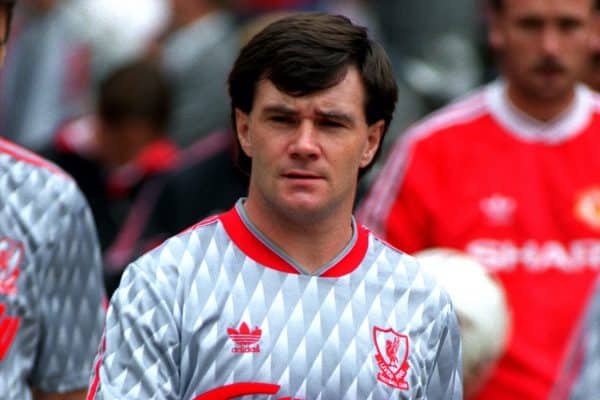
“They were all good, because in the years before I joined they were winning trophy and trophy.”
Those trophies dried up, though, in the years that followed, with Jones and his team-mates having only the FA Cup in 1992 and the League Cup in 1995 alongside their names.
“A bit George Best-like”
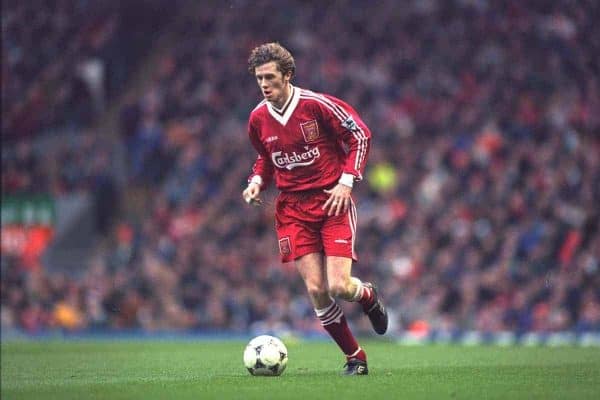
In terms of the league, Liverpool missed out to Man United in the ’90s, with their manager, Alex Ferguson, earmarking McManaman as the Reds’ major threat in his pre-match team talks.
So just how good was the Bootle-born winger, who left for Real Madrid in 1999?
“Unbelievable,” says Jones, who often had to mark the winger in training. “When he used to come onto my side, he made it look so simple.
“It helped me, because if I was ever in a difficult situation at right-back you could give the ball to Macca in any angle, or give him a dodgy ball and he’d get it under control, or do a little jink and skip away from the left-back or left midfielder.
“He was just a massive talent.”
While McManaman’s exit to Madrid left a sour note, on the footballing side it further underlined his qualities.
“When he went to Real Madrid he adapted his game,” explains Jones. “When he played for Liverpool he would constantly be dribbling all the time, but he got hold of the ball more in Madrid and became more of a playmaker and made great runs.
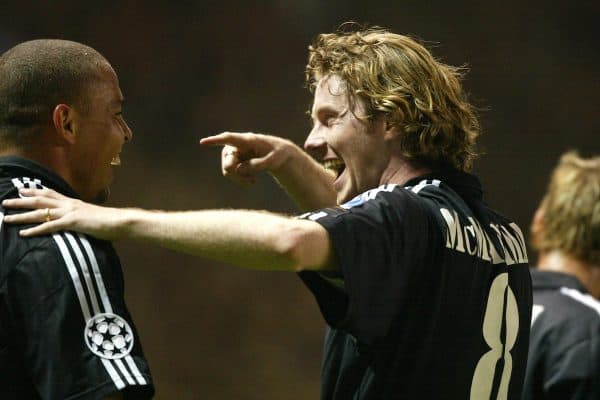
“To see a player be able to adapt like that—he knew that the game was completely different in Spain—shows that he was an unbelievable player and a great, great talent, who succeeded whichever club he went to.
“Macca’s quick but he can run with the ball close to him.
“A lot of people are fast without the ball, but it’s difficult keeping it close to your body. He used to get into full pace and then get the ball under control close to his feet and run just as fast, which is very difficult to do.
“He was a bit George Best-like, stepping over challenges that came in. You can forget about players like that, but he achieved so much in the game and was great to play with.”
And what about Fowler?
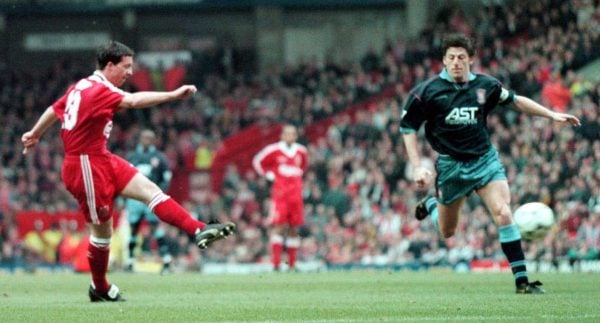
“Robbie is just a natural goalscorer,” says Jones. “Even when we were working at the academy we used to join in in training—once he pulls that left foot back, you think ‘there’s no way he’s scoring’, and it just goes in.
“Sometimes you can see he actually kicks the ball into the ground, which makes it very difficult for goalkeepers.
“He’s just got the perfect eye for goal. The amount of crosses I would put in—maybe not the best crosses—and Robbie would just produce a goal out of it. He was one of the most natural finishers of the ’90s.”
Fowler and McManaman made over 700 appearances for Liverpool between them, scoring a combined 249 goals, so would they make it into what is arguably, and statistically, Liverpool’s greatest-ever team?
“They would definitely get into Liverpool’s team now,” believes Jones. “Although I’m not sure they’d play every game because there’s so much talent at the moment. They would fit in well.”
‘I scored in training… a couple of times!’
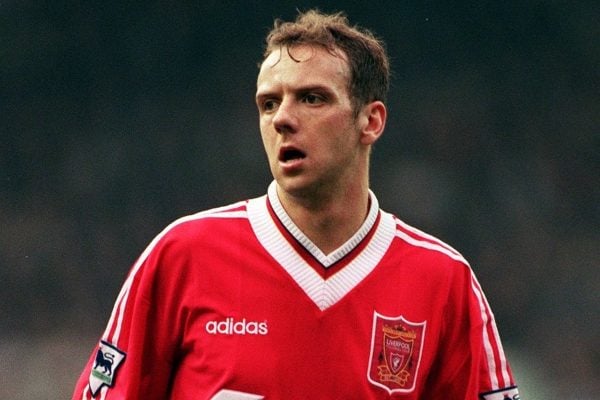
As for Jones, Jamie Carragher once said of the full-back: “I think if he’d have stayed fit he probably would have gone on to win 70 or 80 caps for England instead of Gary Neville.”
“It’s great to hear ex-professionals who you’ve played with or against say nice things about you,” says Jones, whose grandfather, Bill, made 277 appearances for the Reds between 1938 and 1954.
Without injuries, Rob would have overtaken that number of appearances.
“The injury side of it can affect any player,” he looks back. “If any player has a long-term injury it’s really difficult to get back.
“I still look back and realise I played 240 games for Liverpool—which is a lot of games considering I had a lot of injuries. I played a lot and started young. I played about 70 games for Crewe when I was 16, so maybe I peaked too early.
“Michael Owen said that. He played at such a young age, against men, that sometimes the body isn’t ready for it.
“Maybe that had something to do with me picking up injuries later on. Mine were never little muscle injuries, they always seemed to be big ones.
“The shin splints kept me out for six months on and off. Then I was looking to go to Euro 96 and fractured my back, so I didn’t have much luck, but I still look at the whole career, and to play for Liverpool was an absolute dream.
“To play that many games and win a couple of trophies, and play for my country—a lot of players would give their left arm to achieve anything like that.
“It’s always nice to get praise off players. I know Ryan Giggs has said a few nice things in the past.”
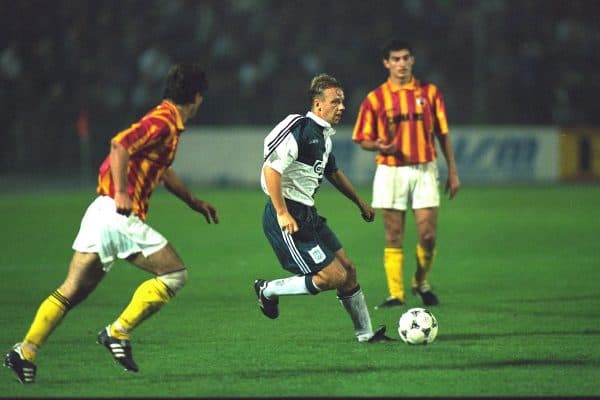
Jones famously, thanks to a long-running joke on the then-cult TV show Soccer AM, never scored for Liverpool. So did he ever hit the back of the net in training?!
“Yeah, only a couple of times!” he told This Is Anfield.
“I just didn’t seem to have that bit of luck. I think I had it cleared off the line about three times, I’ve hit both posts and the crossbar a couple of times. It just wouldn’t go in.
“I scored two goals for Crewe, but it just wasn’t meant to be [at Liverpool]. I probably owe a lot of money to fans on the Kop, who still tell me on Twitter that I’ve cost them a fortune. I think everyone used to put £1 on me at 50/1.
“It’s because I used to get forward a lot, people thought I was bound to score, but it just wasn’t meant to be.
“But at the end of the day, it wasn’t about me scoring, as long as the team won. But of course, it would have been nice to have scored.
“I think the fans were really urging me to score because they could see the effort and the runs I was making. I think they thought at some stage one of them was bound to go in, but it wasn’t meant to be.”
“We should have won more”
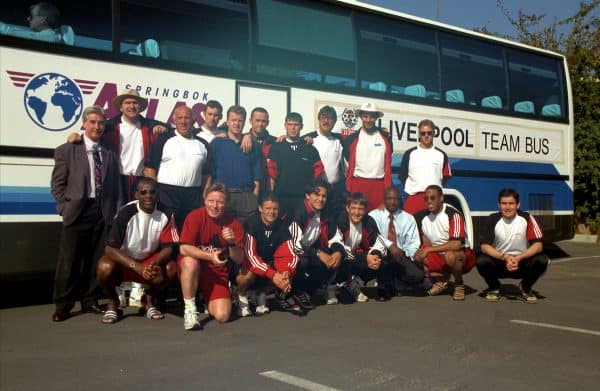
Jones, like many of Liverpool’s best players in the ’90s, ended his Reds career with just the 1992 FA Cup and 1995 League Cup on his honours list, but many believe the team should have halted United’s domestic dominance and ensured No. 19 arrived at Anfield much sooner.
“I think we were [close to winning the Premier League] a couple of times, we just never had that consistency at the end, which Man United had,” Jones says.
“That’s what wins you the league, that little bit of consistency to get you over the finish line.
“We had a good team with some great players. We had a good mixture.
“We had the young ones like me, Robbie Fowler, Steve McManaman and Jamie Redknapp, mixed with the older experienced players like John Barnes, Ian Rush and Bruce Grobbelaar. There was a good mixture of youth and experience.
“We should have won more.”
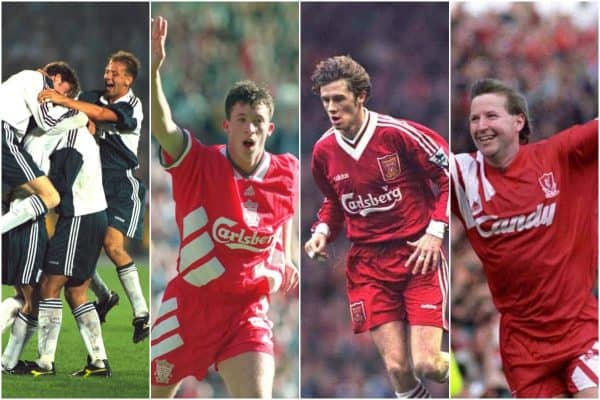

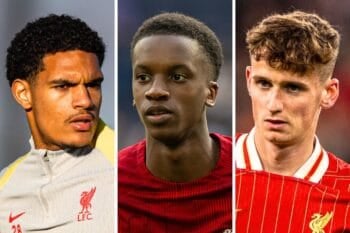
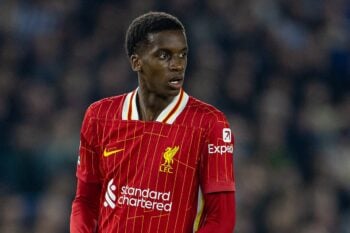
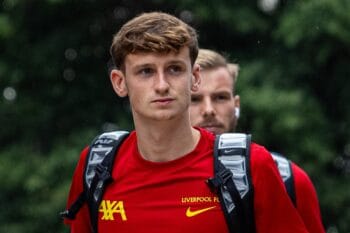
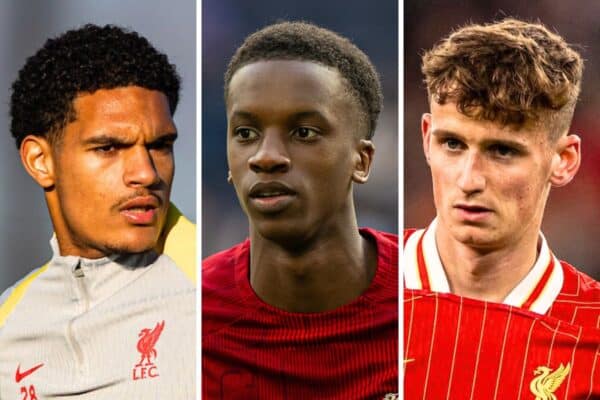
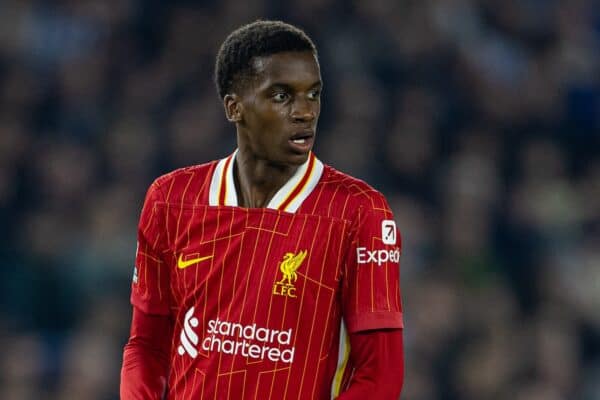
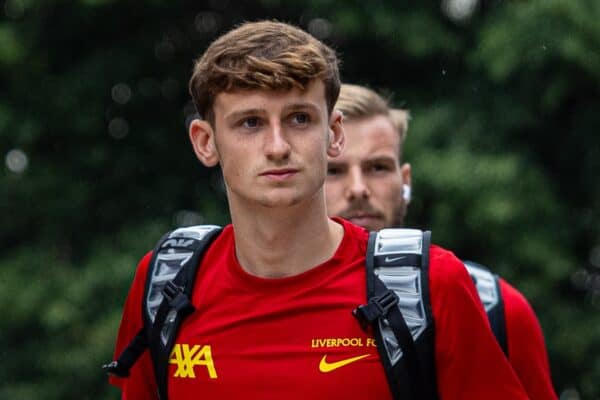

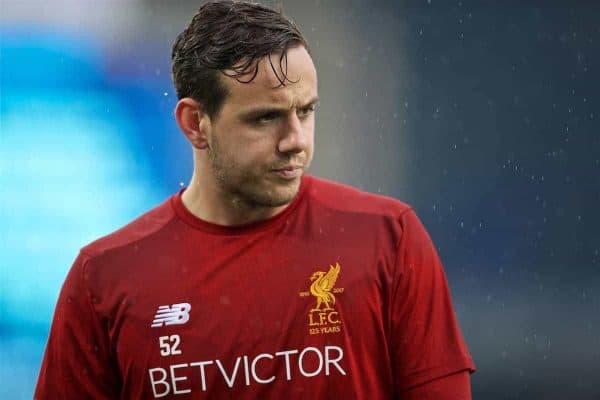
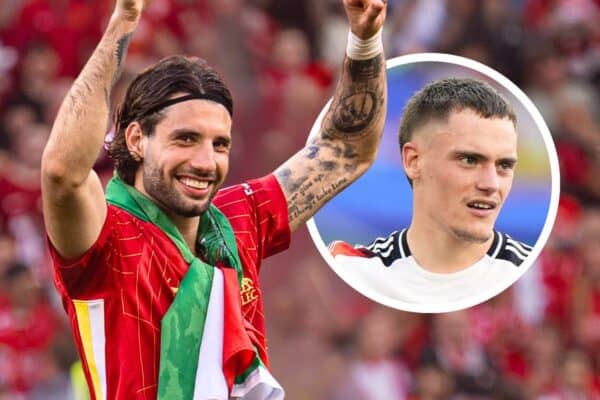
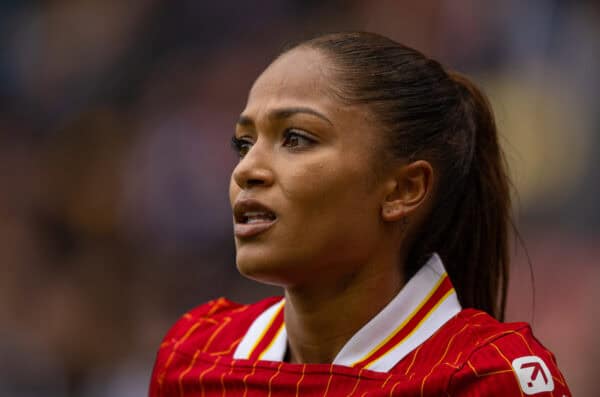
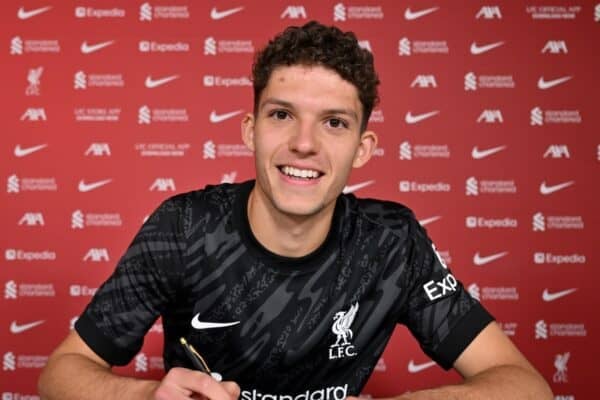

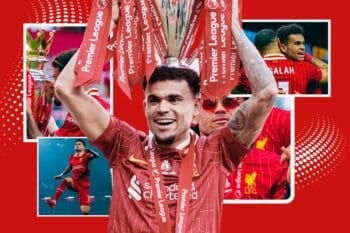
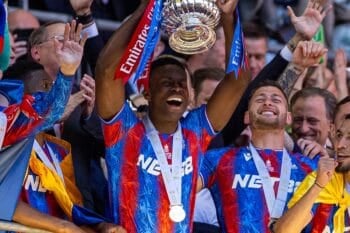
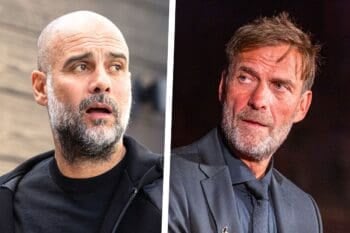
Fan Comments